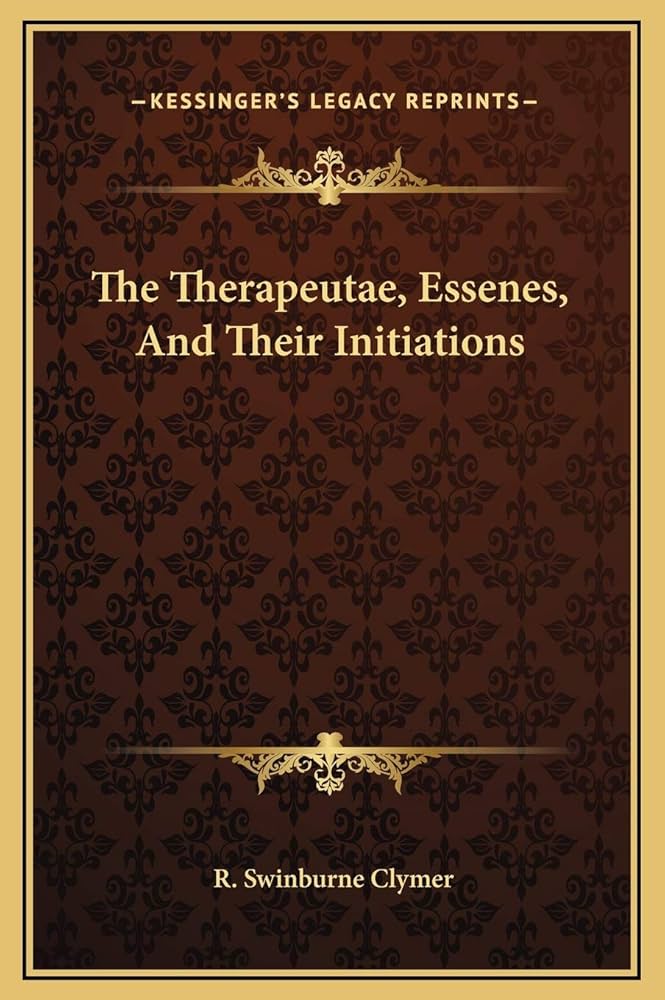
Inner Alchemy
⛩
Home
🔎
Search
🗂
Sequences
📡
Influence
📰
Articles
📚
Books
🎬
Videos
📝
Notes
👁
Dreams
📋
Glossary
📚
Friends & Mentors
📍
Playgrounds

The Therapeutæ
10
Their History and Doctrines
Written by Philo of Alexandria, a Hellenistic Jewish philosopher, this treatise offers the first historical description of the Therapeutæ, a contemplative community established near Lake Mariotis in Egypt.
Philo describes them as men and women living in celibacy, prayer, study, and silence, devoting their lives to healing and the pursuit of divine wisdom.
They lived apart from society, practicing rituals of purification, sacred meals, and mystical interpretation of scripture — all elements later found among the Essenes and early Christian monastics.
Philo presents them as living embodiments of Sophia and the Logos — the merging of divine wisdom (Feminine) and divine word (Masculine). Their lifestyle reflects the Egyptian initiatory model of Ma’at (balance, truth, cosmic order), translated into the language of Judaism and, later, Christianity.
Philo describes them as men and women living in celibacy, prayer, study, and silence, devoting their lives to healing and the pursuit of divine wisdom.
They lived apart from society, practicing rituals of purification, sacred meals, and mystical interpretation of scripture — all elements later found among the Essenes and early Christian monastics.
Philo presents them as living embodiments of Sophia and the Logos — the merging of divine wisdom (Feminine) and divine word (Masculine). Their lifestyle reflects the Egyptian initiatory model of Ma’at (balance, truth, cosmic order), translated into the language of Judaism and, later, Christianity.
Lineage Connection
The Therapeutæ represent the Egyptian branch of the Essene lineage — an initiatic community that integrated the wisdom of Isis, the discipline of Pythagoras, and the mysticism of the Hebrew prophets.
Their presence in Alexandria created the bridge between the Egyptian temples and Qumran, between the rites of Isis and the future contemplative practices of the early Christians.
This text thus stands as a foundational document of the Pontifex lineage: the art of building bridges between sacred worlds — precisely the current reactivated through the Chi-Rho work.
Their presence in Alexandria created the bridge between the Egyptian temples and Qumran, between the rites of Isis and the future contemplative practices of the early Christians.
This text thus stands as a foundational document of the Pontifex lineage: the art of building bridges between sacred worlds — precisely the current reactivated through the Chi-Rho work.
Author’s Roles / Archetypes
Philosopher-priest, observer of hidden sanctuaries, interpreter of divine law through reason and devotion.
Primary Sources / References
• Philo Judaeus. De Vita Contemplativa. (~10 CE).
• Analysis by E. R. Goodenough, Jewish Symbols in the Greco-Roman Period (1953–1968).
• Garth Fowden, The Egyptian Hermes (1986).
• R. Bauckham, The Jewish World Around the New Testament (2008).
• Analysis by E. R. Goodenough, Jewish Symbols in the Greco-Roman Period (1953–1968).
• Garth Fowden, The Egyptian Hermes (1986).
• R. Bauckham, The Jewish World Around the New Testament (2008).
Quotes / Notes
“They live in the presence of God, not by sight but by the vision of the soul.” — Philo of Alexandria
“Their every action, their every word, is a hymn to the Divine.”
“Their houses are temples, and their silence a perpetual offering.”
“Their every action, their every word, is a hymn to the Divine.”
“Their houses are temples, and their silence a perpetual offering.”